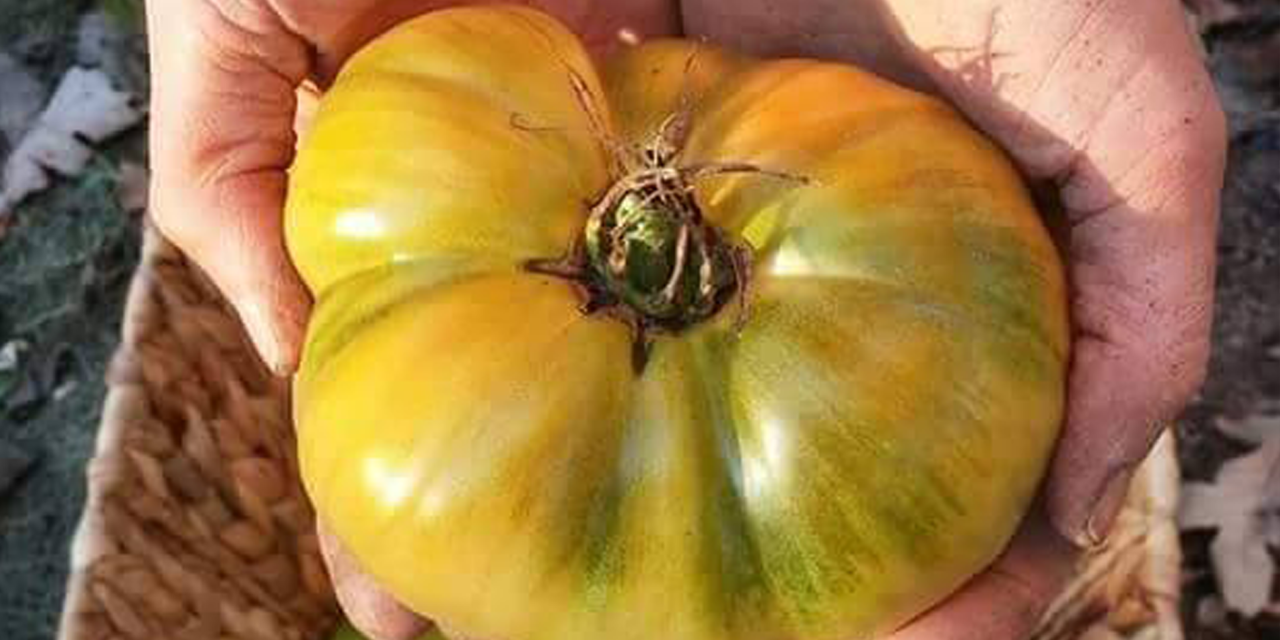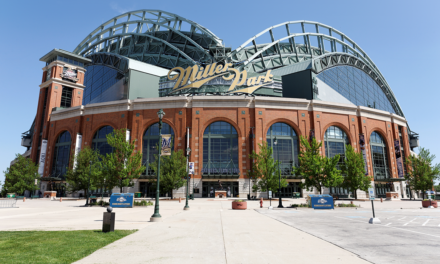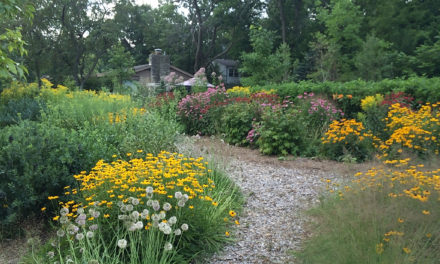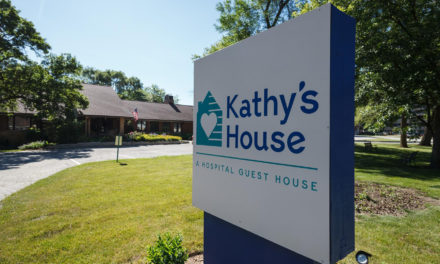Wauwatosa residents Eric and Lisa Fowler began their journey of transforming their yard to an urban farming homestead four years ago. Eric works at a metal fabrication company, and Lisa works at the Wisconsin Humane Society in Milwaukee. After years of living with a nagging frustration, distrust and disappointment about the ways their food supply was being sourced, the Fowlers decided to make an effort to produce their own food.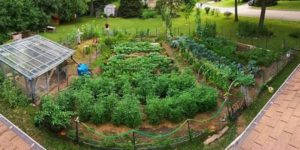
Eric and Lisa used almost every spare moment they had to educate themselves on what it would take to create an urban farming homestead and where to start. They visited local farms and farmer’s markets to share ideas, read several books, spoke to neighbors, and attended local lectures and demonstrations.
When they finally felt they had all the information they needed, they dove right in. The Fowler homestead started with a small raised garden initially, but then progressed to building a chicken coop. They took the risk of building a coop at a time when the law had not yet fully passed.
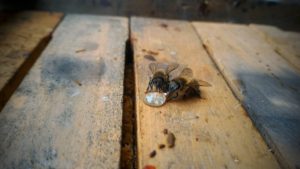 They gathered signatures not only from their surrounding neighbors, per the instruction of the city, but the whole neighborhood. Eric and Lisa wanted to make sure that everyone in the area them would be comfortable with livestock in their backyard.
They gathered signatures not only from their surrounding neighbors, per the instruction of the city, but the whole neighborhood. Eric and Lisa wanted to make sure that everyone in the area them would be comfortable with livestock in their backyard.
Later they realized what their urban farming efforts had done for their neighborhood. It became a stronger community. Neighbors were more social, taking walks to come see the chickens (affectionally known as“the girls”) and to marvel over the progress of their produce production.
The neighbors were also coming to speak with Eric and Lisa to learn how to transform their own yards as well. Others came to visit and lend a hand to the “farm”. Many neighbors collect their compostable food scraps for the Fowlers’ compost pile.
From the more than 650 gallons of rain barrels that help to maintain their water supply, to the compost pile that feeds the soil, they have the elements for a healthy, bountiful crop. It did not take long for the Fowlers to expand their productive land and add to their permaculture crop. They added several fruit trees, more garlic, strawberries, raspberries, and blueberries.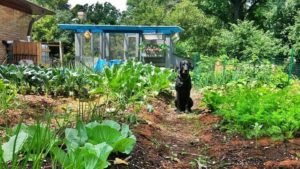
In 2014, the City of Wauwatosa passed laws to allow beekeeping in the city. As with everything else they have done, Lisa and Eric were excited to add a hive to their operation and were very quick to educate themselves on raising bees. A friend was more than happy to donate his beehive to get them started.
Their new lifestyle continues to be a labor of love. Along with an ever-changing variety of vegetables, they work constantly at improving their very environmentally conscious process of soil management, water conservation, food storage, seed saving and more.
For many years Lisa has grown all of her vegetables by seed. Seedlings are germinated in recycled toilet paper rolls, while overflow seeds grow within used flats. The soil used for germination is a mixture of organic compost that nourishes the seeds from the start.
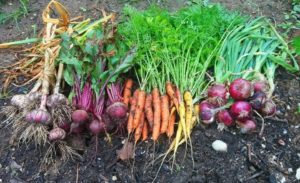 When they are ready to be “hardened off”, or acclimatized, they are placed within a beautiful small greenhouse that Eric created with repurposed pallets and salvaged glass that would have otherwise been placed in a landfill. The Fowlers also recently completed a cold frame green house that houses plants so they grow throughout the cold Wisconsin winter.
When they are ready to be “hardened off”, or acclimatized, they are placed within a beautiful small greenhouse that Eric created with repurposed pallets and salvaged glass that would have otherwise been placed in a landfill. The Fowlers also recently completed a cold frame green house that houses plants so they grow throughout the cold Wisconsin winter.
When they are not working on their own land, the Fowlers are active mentors. Eric is greatly involved with the volunteer group Victory Garden. Victory Garden helps to build gardens throughout the county. In particular, the organization focuses on areas that are considered “food deserts”. Eric and Lisa are inspiring cheerleaders for anyone interested in creating their own plot, no matter the size.
Clearly, Eric and Lisa cannot grow and produce all of their food. When they need to buy something they cannot raise in Wauwatosa, they have done a great deal of research to find sources that best meet their needs. Some of their requirements in purchasing meat are that it be local, grass fed, free range (specifically able to go outside), humane treatment throughout the animal’s lifecycle, and, most often, organic.
The Fowlers prefer to purchase directly from farmers whom they know personally. For larger purchases, they share portions with neighbors, family members, and friends. The neighbors seem to appreciate everything about the evolving farm, especially the sense of serenity within the surrounding hustle and bustle.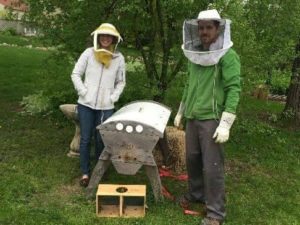
Many people ask about noise, odor and safety, but as of yet there have been no issues to report. In fact, the noise from the coop is usually a pleasant conversational singing that some say is more palatable than lawn mowers and leaf blowers.
The Fowler’s consider it a wonderful challenge to break through the barriers and stigmas of creating a sustainable, productive plot of land within Milwaukee County. But it truly has gone beyond just adding vegetables to their yard and raising chickens. They have taught many adults and children how they too can create more sustainable food sources and communities for future generations.

